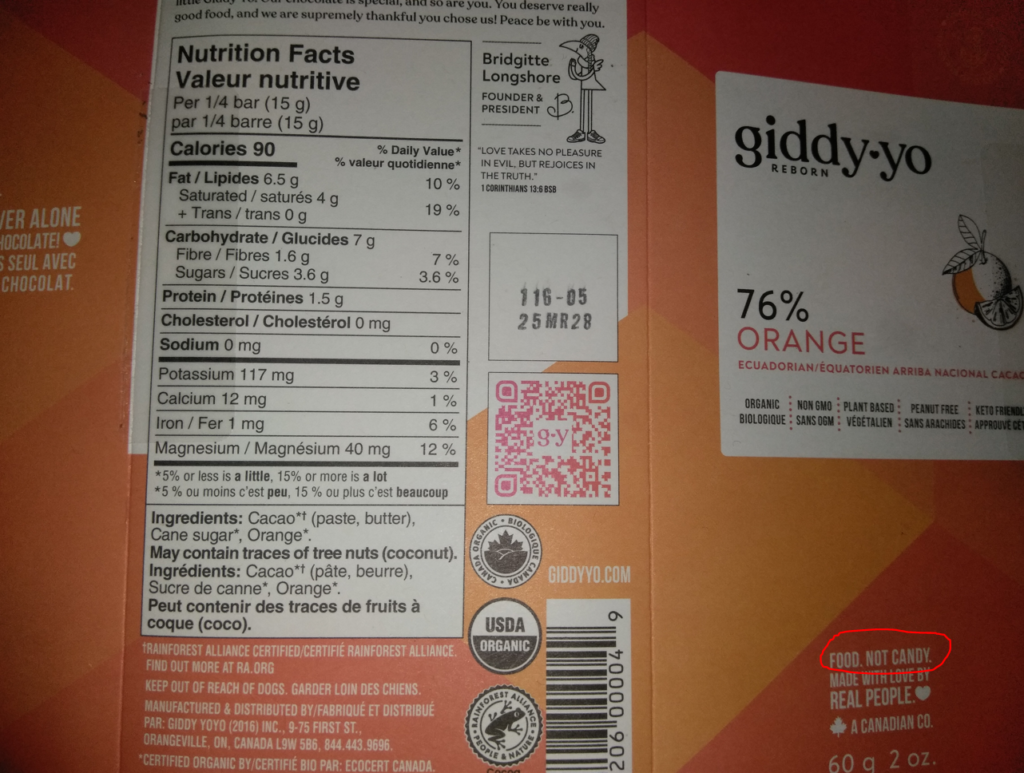What do you think when you read “FOOD. NOT CANDY” on a chocolate bar standing on a shelf among all other candies?

Perhaps that it’s better for you than all other bars. Then take it into hands and start reading other appealing information which sometimes in fact is just a marketing, like “organic”, “non-GMO”, “plant based”, “peanut free”, “keto friendly”, “ethical craft”, etc.

But can we trust all that? Example of giddy-yo unfair practices showed that we can’t.
As it was proven, “FOOD. NOT CANDY” statement on giddy-yo chocolate is nothing but deceptive advertisement leading to false representation of the product. When purchased in grocery store in Ontario, Canada, it was charged with HST 13%, i.e., exactly as candies are supposed to be taxed. Receipt also showed that it is classified as a “chocolate bar”:

By definition chocolate bars are classified as candies as per GST/HST memorandum 4.3 as of January 2007 from CRA:
giddy-yo was contacted by e-mail explaining that they violate the law, and they were advised to address the problem. Surprisingly they refused to do anything about it and even admit that there is a problem!
How can we trust giddy-yo with any other “good” information they provide about ingredients, processing and origins of their bars if they already put incorrect statement on front cover and don’t want to respect the law?